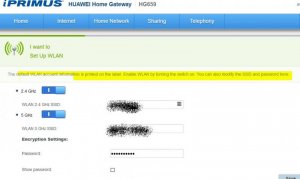fmdog44
Well-known Member
- Location
- Houston, Texas
If I create a doc then print it and immediately delete it without saving it does it still exist in somewhere in my computer?
But heck of you erase it then why not erase it for everyone..Nothing is actually deleted from your PC when clicking DELETE or recycle bin..it will get written over in time, but remnants can still be retrieved by using FORENSIC software, that is why you see police removing Computers from peoples homes after a raid....but to anyone else, without that software, you can consider it gone.
In essence, emptying the trash leaves your document "right there" but "out of reach." to you.
Preventing recovery of deleted documents
On the other hand, if you really need to be sure that, say, a deleted confidential document can not be recovered in this way by someone else, you'll need to use another kind of program designed to scrub all the unused chunks on your disk, making recovery of deleted documents impossible (except perhaps by the FBI or NSA). This is called "erasing the free space."
You can make it but not save it during the process. Then clear the spreadsheet and save that version. Then delete it. The recoverable version won't have your data on it.OK, thanks for the responses. I asked because I was thinking of making a spreadsheet of my important passwords I have always done by had on paper but I don't want to do it if there is a chance of being hacked and my info stolen.
My son is a part time ethical hacker, patches holes before the bad guys get in.Nothing is actually deleted from your PC when clicking DELETE or recycle bin..it will get written over in time, but remnants can still be retrieved by using FORENSIC software, that is why you see police removing Computers from peoples homes after a raid....but to anyone else, without that software, you can consider it gone.
In essence, emptying the trash leaves your document "right there" but "out of reach." to you.
Preventing recovery of deleted documents
On the other hand, if you really need to be sure that, say, a deleted confidential document can not be recovered in this way by someone else, you'll need to use another kind of program designed to scrub all the unused chunks on your disk, making recovery of deleted documents impossible (except perhaps by the FBI or NSA). This is called "erasing the free space."
I use the McAfee shredder to permanently get rid of a file or folder.If I create a doc then print it and immediately delete it without saving it does it still exist in somewhere in my computer?
I move files like this to an external hard drive. Then I turn the power off to that hard drive until I need that specific file again. Then I go back to the copy of that file on my main computer and shred it using McAfee.OK, thanks for the responses. I asked because I was thinking of making a spreadsheet of my important passwords I have always done by had on paper but I don't want to do it if there is a chance of being hacked and my info stolen.
I'm not sure what I meant at the time... sorry."But heck of you erase it then why not erase it for everyone.. " sorry don`t understand that statement"????
Thanks for the reminder about Cache Cleaner. Over the past few months I purchased a new desktop and laptop, but forgot to add CCleaner to them!Deleted files are "hidden" from view, but can still remain on your HD. The best way to Clean your PC is to download and run a free program called CCleaner...It seems to get rid of any remnants of unused/deleted files. It even has a provision for cleaning the Registry. I've used it for several years, and between keeping the Anti-virus up to date, and running CC regularly, I've had no problems.....knock wood.
GL, would you please share some of your son's advice on this subject?My son is a part time ethical hacker, patches holes before the bad guys get in.
I told him to try and get my passwords as I thought I used security best practices, he had them all in less than 5 minutes.
Much of what my son suggests you are already doing.GL, would you please share some of your son's advice on this subject?
I almost never change my passwords because I make them (I think) fairly difficult to break. Upper and lower case letters that don't form words, numbers, and characters. Passwords for banking, purchasing, and personal info are always over 20 characters, and I don't permit my browser to remember them. When going out of town I erase my browsing history. Not sure what else I should be doing.
Agreed about both. Will have to look into changing my WiFi password. Changing my other PWs that frequently would make me crazy. I'd rather add 6 more characters to each and leave it at that.Never thought of changing my WiFi password. Changing my PWs very ninety days or monthly would drive me nuts.
Secure wifi requires a password before allowing you to connect to the network.... I'll have to investigate VPNs.
Ditto with "securing my wifi" - not sure exactly what that means or how to do it. ...
I understand that newly purchased wifi boxes all come with the same preset password for each model and they do not make a point of encouraging people to change them. The fact that many of these preset passwords are published online causes further alarm.Secure wifi requires a password before allowing you to connect to the network.
When out and about I never connect to public wifi, such as those available at coffee shops, etc.

